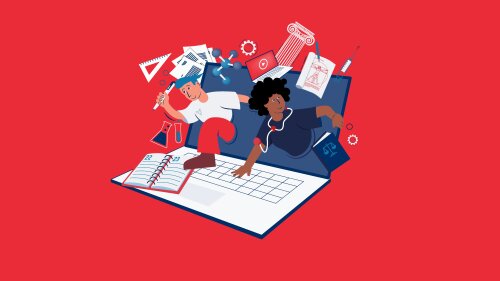
UAntwerp's online preparation platform, Get Started, offers digital self-study packs with self-tests, study materials and exercises with feedback to help you prepare for the English-taught Bachelor of Social and Economic Sciences. These packs will help you to:
- get a clear picture of the prior knowledge you are expected to have
- test your prior knowledge
- gain more prior knowledge
- make a well-considered study choice
Self-study packs
Academic English
Go to the self-study pack
- Purpose: check where you stand in the field of Academic English and close any gaps.
- Course: English
- Programme: all programmes
Why?
Level B2 (of the Common European Framework of Reference for Languages) is required to start university studies in English in Flanders. Academic English is a resource that you will need throughout your university studies if you are following a programme taught in English. This specific use of language is necessary in order to process learning material and complete assignments. A good mastery of Academic English is therefore a key to study success.
For whom?
For all future students in a programme taught in English and their teachers.
What is it about?
This self-study pack introduces you to the academic language you will be using during your university studies. The focus is on academic reading and academic and specific vocabulary. By means of exercises you can check where you stand and tackle what you score poorly on.
English Grammar & Vocabulary
Go to the self-study pack
- Purpose: test your existing knowledge of English grammar and vocabulary and closing any gaps
- Course: English
- Programme: all programmes
Why?
Level B2 (of the Common European Framework of Reference for Languages) is required to start university studies in English in Flanders. This specific use of language is necessary in order to process learning material and complete assignments. A good mastery of academic English is therefore a key to study success.
For whom?
For all future students in a programme taught in English and their teachers.
What is it about?
This self-study pack introduces you to the grammar and vocabulary of English, which you will use during your university studies. You will strengthen your vocabulary and in terms of grammar, you learn about: verb tenses, modal verbs, conditionals, verb patterns, reported speech, adjectives and adverbs, quantifiers, question words, (relative) pronouns, prepositions, dependent prepositions. By means of exercises you can check where you stand and tackle what you score poorly on.
Mathematics: Refresher course for all disciplines
Go to the self-study pack
- Purpose: find out what mathematical knowledge is expected for a certain programme, test it and close any gaps.
- Course: mathematics
- Programme: social-economic sciences
Why?
This self-study pack helps you to find out which mathematical knowledge is expected in the programme of your choice. You can check to what extent your knowledge matches this and in which areas you need some extra practice.
For whom?
For all future students who want to follow a programme in which mathematical knowledge is expected, as well as for their teachers.
What is it about?
The initial test for each course gives you a first idea of your previous knowledge of mathematics and what is required for a particular programme. Based on the feedback of the entry test you can go through the learning material. In the overview per programme, you choose the programme of your choice; then you will find the modules that are recommended for that specific programme.
Each module consists of an initial test, theory, examples and exercises and a final test. The following topics are covered: arithmetic, polynomials and equations, drawing research and inequalities, law, trigonometry, matrices, limits, derivatives, special functions, function progression, complex numbers, splitting into partial fractions and integrals.
For each programme, you will also find an overview of possible preparatory activities on campus (e.g., in September before the start of the academic year), practice material for calibration tests, extra recommended learning material and support possibilities during your study.